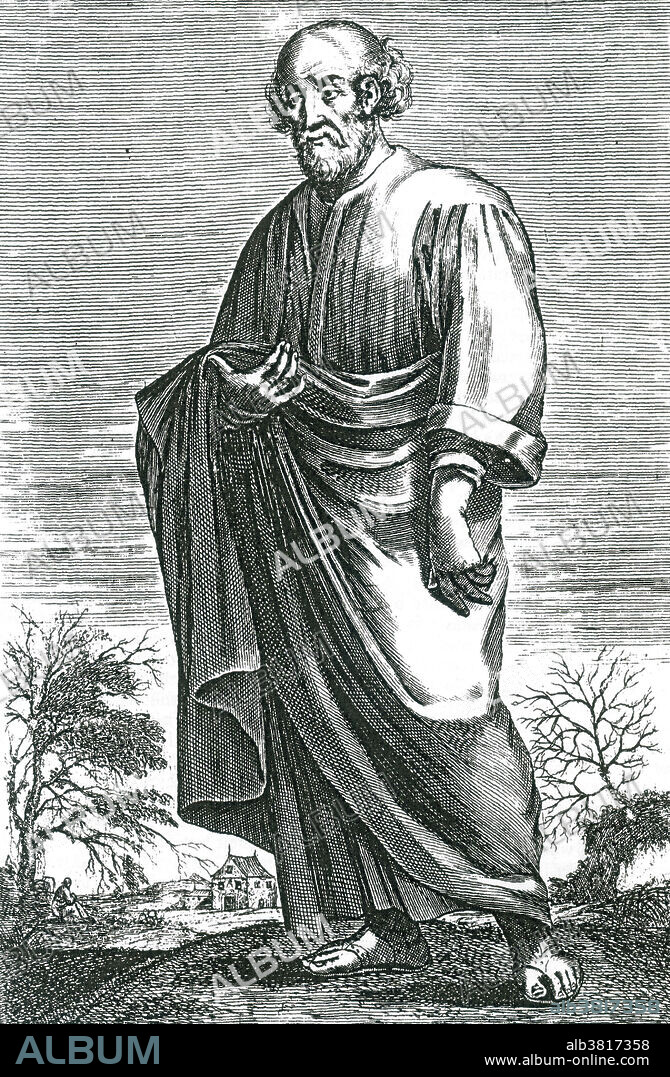alb3817358
Epicurus, Ancient Greek Philosopher

|
Añadir a otro lightbox |
|
Añadir a otro lightbox |



¿Ya tienes cuenta? Iniciar sesión
¿No tienes cuenta? Regístrate
Compra esta imagen

Título:
Epicurus, Ancient Greek Philosopher
Descripción:
Ver traducción automática
Epicurus (341-270 BC) was an ancient Greek philosopher as well as the founder of the school of philosophy called Epicureanism. Only a few fragments and letters of his 300 written works remain. Much of what is known about Epicurean philosophy derives from later followers and commentators. For Epicurus, the purpose of philosophy was to attain the happy, tranquil life, characterized by ataraxia (peace and freedom from fear) and aponia (the absence of pain) and by living a self-sufficient life surrounded by friends. He taught that pleasure and pain are the measures of what is good and evil; death is the end of both body and soul and should therefore not be feared; the gods neither reward nor punish humans; the universe is infinite and eternal; and events in the world are ultimately based on the motions and interactions of atoms moving in empty space. Engraving from The History of Philosophy by Thomas Stanley published in three successive volumes between
Crédito:
Album / Science Source
Autorizaciones:
Modelo: No - Propiedad: No
¿Preguntas relacionadas con los derechos?
¿Preguntas relacionadas con los derechos?
Tamaño imagen:
2747 x 4200 px | 33.0 MB
Tamaño impresión:
23.3 x 35.6 cm | 9.2 x 14.0 in (300 dpi)
Palabras clave:
ANTIGUO • ANTIGÜEDAD • ARTE • ATOMISMOS • DIBUJO • EPICUREISMO • FAMOSO • FIGURA • FILOSOFIA • FILOSOFO • GENTE • GRIEGO • HISTORIA • HISTORICO • HOMBRE • HOMBRES • ILUSTRACION • IMPORTANTE • MASCULINO • MATERIALISMO • OBRA DE ARTE • OCCIDENTAL • PERSONA • PERSONALIDAD • PERSONALIDADES • PORTRAIT • RETRATO DE HOMBRE • RETRATO • SIGLO IV D. C. • SIGLO IV • SIGLO • THOMAS
 Pinterest
Pinterest Twitter
Twitter Facebook
Facebook Copiar enlace
Copiar enlace Email
Email
